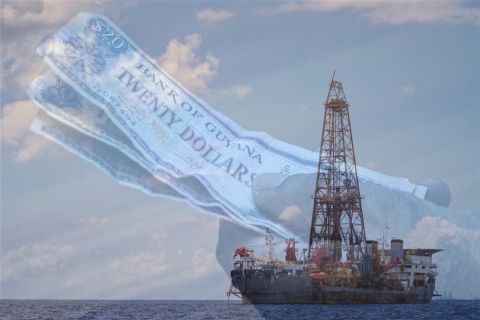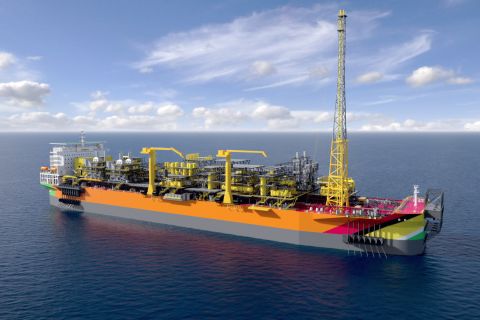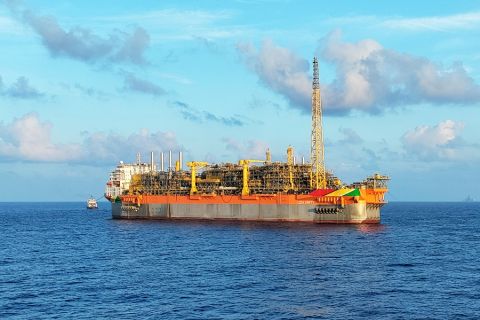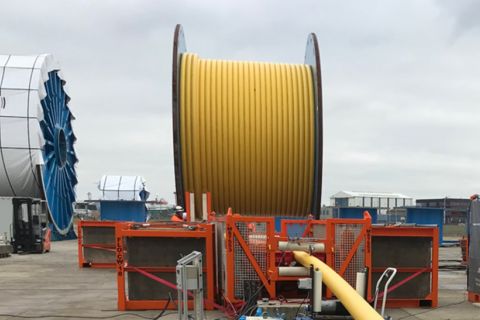McDermott International has signed a deal for the design and construction of a new high-spec dynamically-positioned combination S-Lay deepwater vessel with a 2,000-ton crane.
The vessel, tentatively named Derrick Lay Vessel 2000 (DLV2000), will be built at Keppel Singmarine in Singapore and is expected to take approximately 2.5 years to complete. No contract value has been disclosed.
“DLV2000 is expected to address a market demand we consider to be extremely robust for deepwater pipelines as well as our traditional markets,” said Stephen M. Johnson, Chairman, President and CEO. “A combination heavy lift and deepwater S-Lay pipelay vessel is an important asset for our expanding fleet, focusing on the subsea construction market.”
Developed by Keppel’s ship design arm, Marine Technology Development (MTD), the DLV2000 will be equipped to support advanced deepwater pipelay operations that will allow pipelines to be installed at depths of up to 3,048 m (10,000 ft). An economical vessel transit speed is expected to be 12 knots, with a top speed of 14 knots. On completion, the vessel will be able to accommodate up to 400 personnel.
DLV2000 is the second newbuild vessel under construction for McDermott’s fleet. In August last year the company signed a contract to build Lay Vessel 108, sister ship to the recently completed subsea construction vessel the Lay Vessel North Ocean 105.
Recommended Reading
Exxon Versus Chevron: The Fight for Hess’ 30% Guyana Interest
2024-03-04 - Chevron's plan to buy Hess Corp. and assume a 30% foothold in Guyana has been complicated by Exxon Mobil and CNOOC's claims that they have the right of first refusal for the interest.
Pitts: Heavyweight Battle Brewing Between US Supermajors in South America
2024-04-09 - Exxon Mobil took the first swing in defense of its right of first refusal for Hess' interest in Guyana's Stabroek Block, but Chevron isn't backing down.
Exxon Mobil Green-lights $12.7B Whiptail Project Offshore Guyana
2024-04-12 - Exxon Mobil’s sixth development in the Stabroek Block will add 250,000 bbl/d capacity when it starts production in 2027.
Exxon Mobil Guyana Awards Two Contracts for its Whiptail Project
2024-04-16 - Exxon Mobil Guyana awarded Strohm and TechnipFMC with contracts for its Whiptail Project located offshore in Guyana’s Stabroek Block.
Exxon Ups Mammoth Offshore Guyana Production by Another 100,000 bbl/d
2024-04-15 - Exxon Mobil, which took a final investment decision on its Whiptail development on April 12, now estimates its six offshore Guyana projects will average gross production of 1.3 MMbbl/d by 2027.





